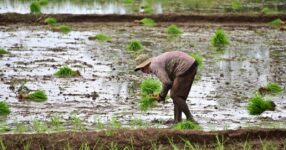
What you need to know
PRESIDENT Ferdinand Marcos Jr. has signed the Anti-Agricultural Economic Sabotage Act into law, a significant measure aimed at intensifying the country’s battle against smuggling, hoarding, and cartel operations in the agricultural sector.
This new law, officially known as Republic Act 12022, is designed to address these illegal practices head-on by imposing severe penalties and reinforcing law enforcement efforts.
What does the law entail?
Under the Anti-Agricultural Economic Sabotage Act, activities like smuggling, hoarding, and cartel operations involving agricultural products are now classified as economic sabotage.
This classification means that these offenses are considered extremely harmful to the country’s economy, and as such, they carry non-bailable charges.
Offenders found guilty could face life imprisonment and fines up to five times the value of the goods involved.
According to Marcos, this law represents a proactive step toward not only stopping illegal agricultural activities but also ensuring that duties and taxes on agricultural imports are paid correctly.
The law is also designed to prevent the distribution of unsafe or substandard agricultural products by requiring necessary sanitary and phytosanitary permits.
Who will be held accountable?
The law does not stop at punishing the masterminds behind smuggling or hoarding operations. It also targets accomplices who participate in these crimes, ensuring that all individuals involved are held accountable. This broad scope is part of a larger effort to dismantle entire networks of illegal agricultural operations.
New bodies to combat agricultural crimes
To effectively enforce this law, Marcos earlier ordered the creation of two key groups:
Anti-Agricultural Economic Sabotage Council — Focuses on developing strategies to prevent and combat smuggling and other illegal activities.
Anti-Agricultural Economic Sabotage Enforcement Group — Tasked with carrying out operations to dismantle smuggling networks and apprehend offenders. This group will work alongside a special team of prosecutors to expedite cases related to agricultural economic sabotage.
Marcos emphasized that these cases will not be allowed to linger, stating that the government will prioritize and resolve them urgently.
“We will confront and dismantle the powerful forces that have long exploited our system for their own gain,” he said.
Senators’ reactions
Several lawmakers, including Senator Loren Legarda and Senator Cynthia Villar, have expressed their support for the new law.
Legarda highlighted that the law could lead to more affordable food products for Filipino families by cracking down on those who exploit the agricultural sector for personal profit.
Villar, the author of the bill, welcomed the move, noting that illegal activities like artificial shortages, price manipulation, and evading customs duties have long been a threat to the country’s economy and food security.
Villar also said that the law will help protect local production and prevent unscrupulous individuals from creating scarcity or entering into unfair agreements that harm competition and drive up prices for consumers. (SunStar Philippines)



